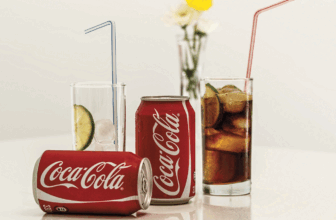
Although we’re entering the time of year where our energy bills are typically reducing, with the skyrocketing prices this year, that might not be the case. It’s worth taking a few minutes to see where savings can be made.
- Hang your washing on the line, outside, rather than using the tumble drier. Shake them out, as you peg them to the line, to reduce the amount of ironing they require. If you do use a tumble drier remember to empty the lint filter after each cycle, maximising the efficiency of the machine. Remove the clothes from the machine as soon as they are dry, and not just when the cycle finishes.
- Fold dry cloths straight from the line or tumble drier, again reducing the need to iron.
- Turn off the lights, when you leave a room.
- Turn off chargers when the appliance is fully charged.
- Reduce your washing machine temperature. Many modern fabrics actually prefer being washed on a cooler cycle.
- While working from home, instead of being tempted to put the heating on, get up regularly to stretch and move around. This will get your blood pumping and warm you up. Sitting all day at a desk, no matter how warm the day is, will leave you cold.
- Take a 4 minute shower.
- If you are a bath lover, try and reduce your baths by swapping it for a shower, once a week.
- Don’t overfill a kettle, only boil what you need.
- As your lightbulbs fail, replace them with low energy bulbs.
- Now is a great time to fit draught excluders to your windows and doors, ready for next winter.
- Reduce how often you wash your clothes. Reduces wear to your clothes and reduces your energy bills.
- Only run the dishwasher and washing machine when they are full.
- Ensure your water tank is properly lagged.
- Heat your hot water tank only when you need hot water, and heat only what you’re going to use.
- If you need to replace an old appliance look at the efficiency rating of new appliances. Over it’s life-time there are significant saving to be made.
- Rather than boiling water on the hob to steam the veg, it’s far more energy efficient, and quicker, to boil the water in the kettle first and then transfer the water. Always remember to cook the veg in as little water as possible, reducing energy, as well as preserving the food’s goodness.
- Maybe not the season for slow cookers, but they are very energy efficient, using little more energy than a traditional light bulb.
- Only open the oven door when you need to. Typically an oven will lose 25 degrees each time the door is opened. A glass oven door is therefore a very good idea.
- If your fridge/freezer doesn’t defrost automatically, make sure you defrost it on a regular basis. This allows it to run more efficiently. Also, don’t forget to clean behind your appliances, to remove the build up of dust and debris that can hinder efficient cooling.
- If you have an air conditioning unit, remember to keep your doors and windows closed, as much as possible, to keep the cool air in.
Penny Lynch
Norwex Independent Sales Consultant
pennylynch.norwex.eu











